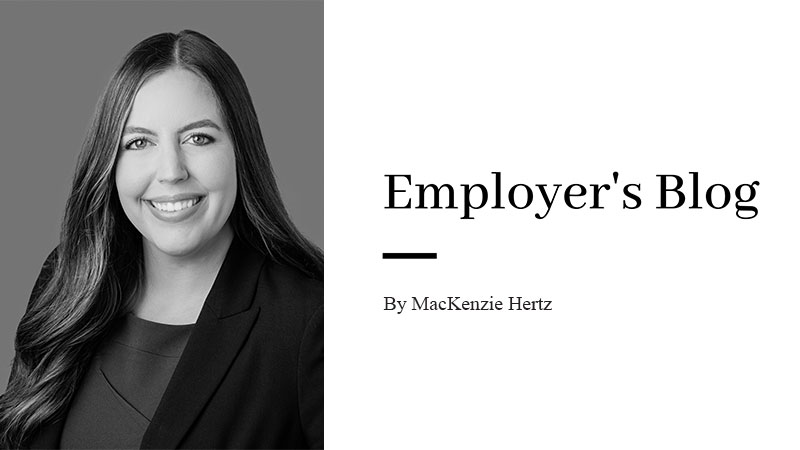
Yesterday, after much deliberation, the U.S. Equal Employment Opportunity Commission (EEOC) finally issued a final rule to implement the Pregnant Workers Fairness Act (PWFA). After receiving over 100,000 public comments since proposing rules for the PWFA in August 2023, the final rule is scheduled to go into effect on June 18, 2024, unless delayed by legal challenges.
In short, the PWFA requires employers with 15 or more employees to provide “reasonable accommodations” to workers with known limitations related to pregnancy, childbirth, or related medical conditions, unless doing so would impose an undue hardship on the employer. The final regulations, which provide guidance for granting and denying accommodation requests under the PWFA, contain several key and noteworthy provisions.
First, the final regulations emphasize that the PWFA broadly applies to a myriad of physical and medical limitations directly or indirectly associated with pregnancy, childbirth, or related medical conditions. For example, covered circumstances may include:
- Current, past, and potential pregnancy;
- Contraception use;
- Termination of pregnancy (via miscarriage, stillbirth, or abortion);
- Infertility and fertility treatment;
- A wide array of pregnancy-related sicknesses (such as nausea, preeclampsia, and carpal tunnel syndrome);
- Lactation and related issues; and
- Menstruation.
Second, under the final regulations, an individual may be eligible for protection under the PWFA even without severe physical or mental limitations. PWFA’s protections apply to modest, minor, or episodic conditions as well as to individuals who are simply seeking healthcare or otherwise taking steps to maintain their health or the health of a pregnancy. Accordingly, even workers with healthy or uneventful pregnancies could be eligible for accommodations under the PWFA.
Third, individuals are “qualified” for accommodation under the PWFA even if they cannot perform the essential functions of their job (with or without reasonable accommodation) if the inability to do so is temporary and the individual will be able to perform those functions in the near future. The EEOC declined to define the terms “temporary” and “in the near future,” instead indicating that “in the near future” generally (but not always) means approximately 40 weeks for pregnant workers. For conditions other than pregnancy, the final rule emphasizes that an appropriate duration will be judged on a case-by-case basis.
Fourth, the final rule has clarified that, in some instances, employers may seek reasonable supporting documentation upon receiving an accommodation request under the PWFA. The final rule defines “reasonable documentation” as the minimum documentation sufficient to confirm (1) the existence of a physical or mental condition, (2) that condition is related to, affected by, or arising out of pregnancy, childbirth, or related medical conditions, and (3) the change or adjustment needed due to the limitation.
Lastly, the final regulations include a non-exhaustive list of possible accommodations that may be warranted under the PWFA, such as:
- Telework;
- Frequent breaks;
- Sitting/Standing;
- Job restructuring, light duty, temporarily suspending one or more essential functions, schedule changes, part-time work, and paid and unpaid leave;
- Parking alternatives or otherwise making existing facilities accessible or modifying the work environment;
- Acquiring or modifying equipment, uniforms, or devices; and
- Adjusting or modifying examinations or policies.
The final rule has further clarified that an employer can only deny an accommodation request if it would result in an “undue hardship” on the employer’s operations. Given that the PWFA may require accommodations to workers who are temporarily unable to perform essential job functions, the final rule has provided factors to consider in determining whether an undue hardship may exist as a result:
- The length of time that the employee will be unable to perform the essential function(s);
- Whether the employee can perform other work;
- The nature of the essential function, including its frequency;
- Whether the employer has temporarily suspended duties for other employees in similar positions who are unable to perform their essential job function(s);
- Whether other employees, temporary employees, or third parties can perform or be temporarily hired to perform the essential function(s) in question; and
- Whether the essential function(s) can be postponed or remain unperformed for any length of time and, if so, for how long.
The final rule has further emphasized that some limited accommodations are reasonable in virtually all cases, such as allowing an employee to (1) carry or keep water near and drink; (2) take additional breaks for the restroom or to eat or drink; and (3) sit/stand as needed.
For the full text of the final rule, scheduled to be published on April 19, 2024, you may visit: https://www.federalregister.gov/public-inspection/2024-07527/implementation-of-the-pregnant-workers-fairness-act. Employers should review their policies and train supervisors to comply with the PWFA with the additional guidance from the final regulations. Employers should also keep an eye out for legal challenges to the final regulations, which may cause additional delays. For more information, reach out to a member of Vogel Law Firm’s Employment and Labor Law Team!
MacKenzie Hertz, Employment and Labor Law Attorney
